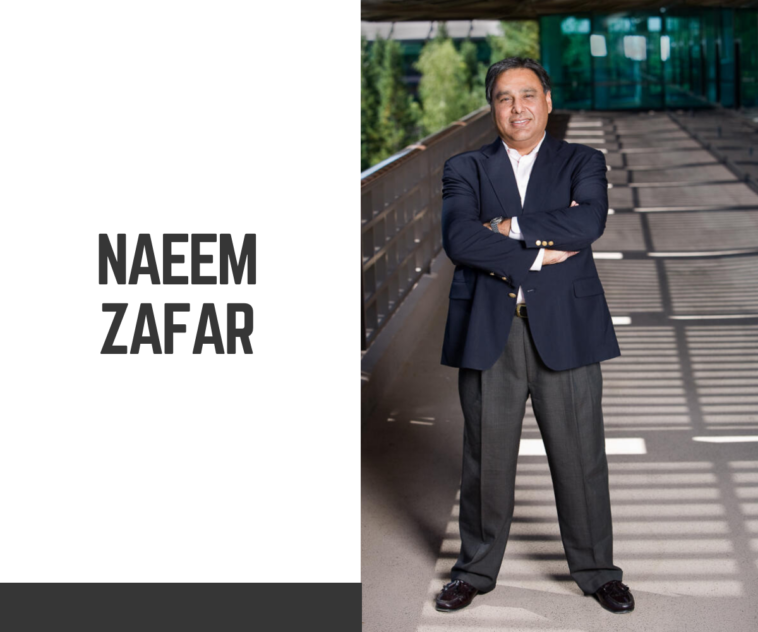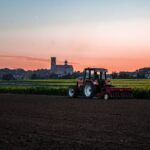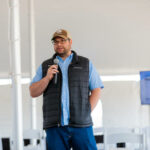* This interview was conducted ahead of the Cultivate Conference which took place on July 15, 2021.
In 2014, Naeem Zafar founded TeleSense, an Internet of Things company that helps to reduce spoilage in the post-harvest grain industry by implementing the use of wireless sensors for temperature, humidity and carbon dioxide monitoring.
Before founding TeleSense, Zafar previously spent time as a CEO of five high-tech businesses. He has worked on teams responsible for internationally used products including the fingerprint sensor chips we use in our phones today.
In addition to his entrepreneurial pursuits, Zafar is a professor at the University of California Berkeley. He is also the author of five books.
If you can save 10% grain, you can make an impact on every farmer’s bottom line.
-Naeem Zafar on the implications of TeleSense
Q & A
In addition to talking about TeleSense, what do you plan on speaking about at the conference?
Some industries have been touched by technology and software in a big way and some have not. In things like E-Commerce and retail, there has been a big infusion with technology and in agriculture, not so much. There are some things that are being done with robotics and automation, but there is a lot more that can be done with
data and analytics to provide insights
I will highlight what is happening in each phase and what will be going on over the next ten years from a technology perspective.
Is this your first venture into the ag space?
Yes, but this is my seventh company.
How did you get into the ag industry?
As with most things in life, it happened on accident. When I started this company, I knew the Internet of Things was going to be a big deal. However, we needed to find the right use case. We tried a bunch of different use cases including seafood monitoring for FSMA compliance, machine monitoring for maintenance and dangerous gases in tunnels. I ended up meeting the head of a large company in Australia at an accelerator and I showed them our product. They asked if it could work with grain, and being the entrepreneur that I am, I said, ‘of course.’ They didn’t believe me, so I went to Australia to show them
Did you know the sensor would work in the grain bin?
Well, I figured, how hard could it be? The device is transmitting wirelessly. It doesn’t know whether it’s sitting in a grain bin or a tunnel. There were issues that came up, but I’m an electrical engineer. So, we made changes to adjust. That’s what entrepreneurs do.
What do you hope the people attending your speech gain?
I want them to realize, first off, that they don’t need to be afraid of all of this technology. They don’t have to apply technology to everything. But there are probably one or two ideas or processes that can be adopted to help them.
Second, I want them to see some examples of people who have already benefitted from agriculture.
Why do you think adoption has been slow in the ag space?
I think growers are very strong and willed and independent thinkers. They don’t have a boss. They make their own decisions and they tinker. You can’t come in and mandate something to them. They have to see results.
Why are you interested in listening to some of the other speeches at Cultivate?
I’ll be interested in everything. What an entrepreneur does is absorb knowledge. A lot of informal conversations give you new insights.
Why when you could retire financially, do you keep going?
When you get to my age, you look back at what you’ve extracted from the world and what you have given back. I want to leave a legacy and create something that remains useful after I am dead. I think what we are doing now can have that type of impact and that is meaningful to me.
Also, what am I going to do every day, if I retire? This is something fun and something useful to do
What’s your favorite part about entrepreneurship?
Solving a problem that impacts people’s lives by improving their financial outcomes. Margins in agriculture are very slim. If we can double those margins, that will make a very big impact.
Are there any other messages you want to get out to growers?
Yes, don’t be afraid to experiment with technology. You experiment with seeds and all sorts of other things. Why not technology? It could be tremendously helpful.
What tips do you have for other CEOs?
Every new business is developed to solve a problem. So, you want to be able to articulate an unmet need and who has a problem. If you are able to segment who needs you more, you can really sharpen your focus.
Is there anything else you want to say?
We are a triple-bottom-line company. We are working to make a social and environmental.




